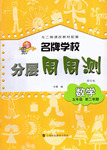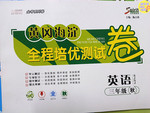题目内容
Can you help me ? I want to find some to eat .
A.milk B.orange C.bread D.tomato
 名牌学校分层周周测系列答案
名牌学校分层周周测系列答案 黄冈海淀全程培优测试卷系列答案
黄冈海淀全程培优测试卷系列答案Welcome to Toy stores! | |
Color: Yellow Price:$30 ($15 on Children's Day) http://shop1274.taobao.com |
Color: Brown Price:$10 http://shop6489.taobao.com |
Color: Blue and red Price:$40 Nice gift(礼物) for your children on Christmas Day at Xinhua Store. |
Color: Blue Price:$20 A model phone as a gift. http://shop4783.taobao.com |
1.You can get a toy car for $ _______ on Children's Day.
A. 5 B. 10 C. 15 D. 30
2.A mother buys a Thomas train for her baby, and she can get _______, too.
A. a ruler B. a quilt C. a model phone D. a plane
3.You can't buy a _______ on your computer.
A. model plane B. Thomas train C. toy car D. soft toy
4.Which of the following is RIGHT?
A. You can't buy a model plane from Xinhua Store.
B. You can get a soft toy from http://shop1274.taobao.com.
C. The toy car has three colors--brown, red and blue.
D. Thomas train is very nice for children from three to seven.
5.On Christmas Day, if you have $40, you can buy _______ .
A. a soft toy and a model plane B. a soft toy and a Thomas train
C. a Thomas train and a toy car D. a toy car and a model plane


 ★Toy Car
★Toy Car ★Soft Toy
★Soft Toy ★Model Plane
★Model Plane ★Thomas Train(for children of 3-7)
★Thomas Train(for children of 3-7)